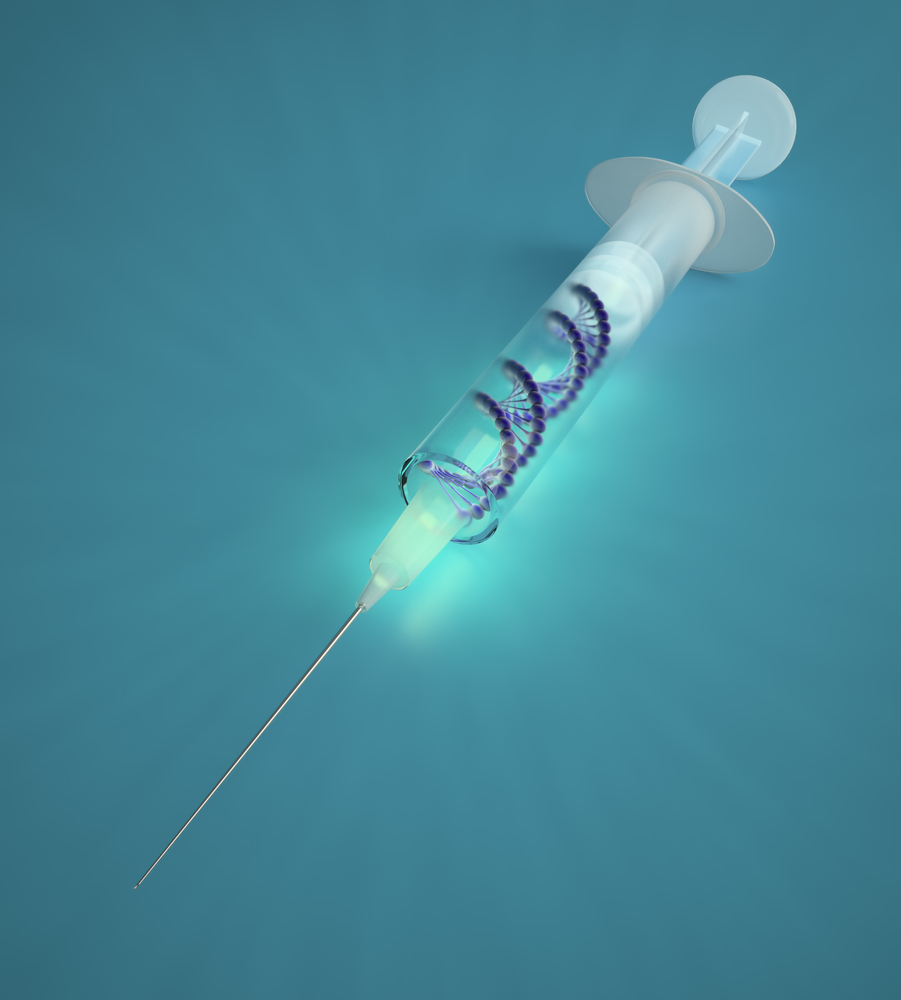
An investigational malaria vaccine has protected a small number of healthy U.S. adults from infection with a malaria strain different from that contained in the vaccine, according to a study published today in the Proceedings of the National Academy of Sciences (PNAS). The National Institute of Allergy and Infectious Diseases (NIAID), part of the National Institutes of Health, sponsored and co-conducted the Phase 1 clinical trial.
Malaria is transmitted to humans through the bite of infected mosquitoes, which inject immature malaria parasites called sporozoites into a person’s bloodstream. The parasites travel to the liver, where they mature, multiply and spread via the bloodstream throughout the body causing malaria symptoms including chills, fever, headache, nausea, sweating and fatigue. According to the World Health Organization, 214 million people were infected with malaria globally in 2015 and 438,000 people died, mostly young African children. The species Plasmodium falciparum is the most common cause of malaria morbidity and mortality in Africa. In the United States, travel-related malaria is a concern for international tourists, aid workers and military personnel worldwide.
The PfSPZ Vaccine used in this study was developed by Sanaria Inc., of Rockville, Maryland. The vaccine contains weakened P. falciparum sporozoites that do not cause infection but are able to generate a protective immune response against live malaria infection. Earlier research at the NIH Clinical Center with the PfSPZ Vaccine found it to be safe, well-tolerated and protective for more than a year when tested in healthy U.S. adults against a single Africa-derived malaria strain matched to the PfSPZ Vaccine.
“An effective malaria vaccine will need to protect people living in endemic areas against multiple strains of the mosquito-borne disease,” said NIAID Director Anthony S. Fauci, M.D. “These new findings showing cross-protection with the PfSPZ Vaccine suggest that it may be able to accomplish this goal.”
The study enrolled 31 healthy adults ages 18 to 45 years, and was led by Julie E. Ledgerwood, D.O. of NIAID’s Vaccine Research Center (VRC), and Kirsten E. Lyke, M.D. of the University of Maryland Center for Vaccine Development in Baltimore. Participants were assigned to receive three doses of the PfSPZ Vaccine at eight-week intervals by rapid intravenous injection.
Nineteen weeks after receiving the final dose of the test vaccine, participants who received the vaccine and a group of non-vaccinated volunteers were exposed in a controlled setting to bites from mosquitoes infected with the same strain of P. falciparum parasites (NF54, from Africa) that were used to manufacture PfSPZ Vaccine.
Nine of the 14 participants (64 percent) who received PfSPZ Vaccine demonstrated no evidence of malaria parasites; all six of the non-vaccinated participants who were challenged at the same time had malaria parasites in their blood.
Of the nine participants who showed no evidence of malaria, six participants were again exposed in a controlled setting to mosquito bites, this time from mosquitoes infected with a different strain of P. falciparum parasite, 33 weeks after the final immunization. In this group, 5 of the 6 participants (83 percent) were protected against malaria infection; none of the six participants who did not receive the vaccine and were challenged were protected. All participants who became infected with malaria immediately received medical treatment.
“Achieving durable protection against a malaria strain different from the vaccine strain, over eight months after vaccination, is an indication of this vaccine’s potential,” said Robert A. Seder, M.D., chief of the Cellular Immunology Section of NIAID’s Vaccine Research Center and senior author of the PNAS paper. “If we can build on these findings with the PfSPZ Vaccine and induce higher efficacy, we may be on our way to a vaccine that could effectively protect people against a variety of malaria parasites where the disease is prevalent.”
The research team found that the PfSPZ Vaccine activated T cells, a key component of the body’s defenses against malaria, and induced antibody responses in all vaccine recipients. Vaccine-specific T-cell responses were comparable when measured against both of the malaria challenge strains, providing some insights into how the vaccine was mediating protection.
Ongoing research will determine whether protective efficacy can be improved by changes to the PfSPZ Vaccine dose and number of immunizations. Accordingly, a Phase 2 efficacy trial testing three different dosages in a three-dose vaccine regimen is now underway in 5-to 12-month-old infants in Western Kenya to assess safety and efficacy against natural infection.
Filed Under: Drug Discovery




